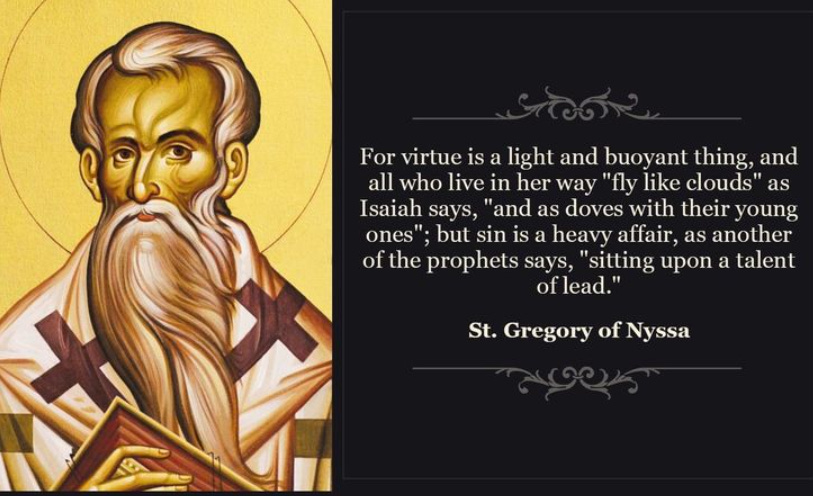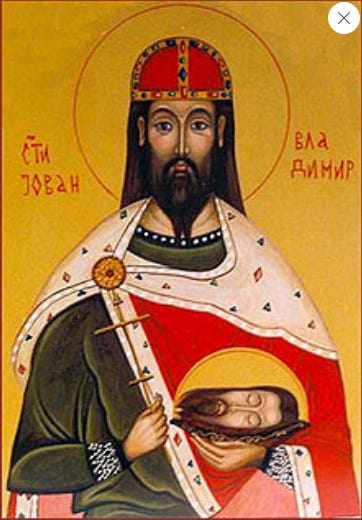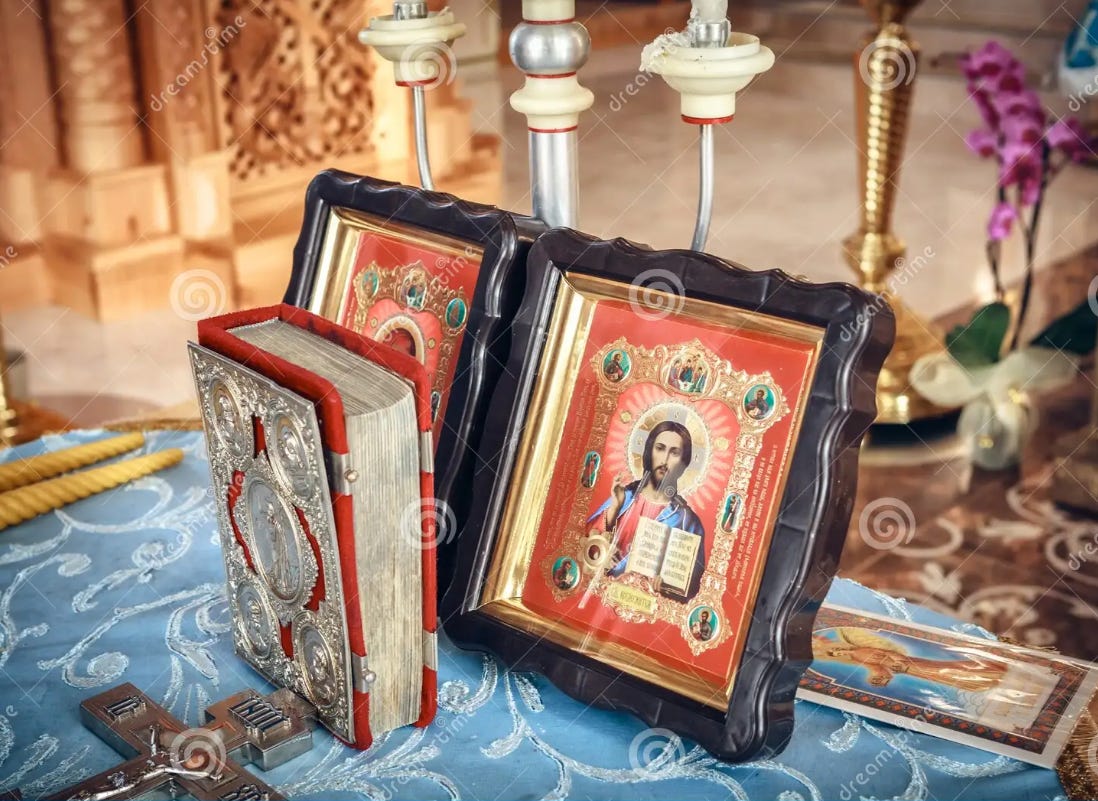Acts 14:20-27 (Epistle)
20 However, when the disciples gathered around him, he rose up and went into the city. And the next day he departed with Barnabas to Derbe.
21 And when they had preached the gospel to that city and made many disciples, they returned to Lystra, Iconium, and Antioch,
22 strengthening the souls of the disciples, exhorting them to continue in the faith, and saying, “We must through many tribulations enter the kingdom of God.”
23 So when they had appointed elders in every church, and prayed with fasting, they commended them to the Lord in whom they had believed.
24 And after they had passed through Pisidia, they came to Pamphylia.
25 Now when they had preached the word in Perga, they went down to Attalia.
26 From there they sailed to Antioch, where they had been commended to the grace of God for the work which they had completed.
27 Now when they had come and gathered the church together, they reported all that God had done with them, and that He had opened the door of faith to the Gentiles.
John 9:39-10:9 (Gospel)
39 And Jesus said, “For judgment I have come into this world, that those who do not see may see, and that those who see may be made blind.”
40 Then some of the Pharisees who were with Him heard these words, and said to Him, “Are we blind also?”
41 Jesus said to them, “If you were blind, you would have no sin; but now you say, ‘We see.’ Therefore your sin remains.
1 Most assuredly, I say to you, he who does not enter the sheepfold by the door, but climbs up some other way, the same is a thief and a robber.
2 But he who enters by the door is the shepherd of the sheep.
3 To him the doorkeeper opens, and the sheep hear his voice; and he calls his own sheep by name and leads them out.
4 And when he brings out his own sheep, he goes before them; and the sheep follow him, for they know his voice.
5 Yet they will by no means follow a stranger, but will flee from him, for they do not know the voice of strangers.”
6 Jesus used this illustration, but they did not understand the things which He spoke to them.
7 Then Jesus said to them again, “Most assuredly, I say to you, I am the door of the sheep.
8 All who ever came before Me are thieves and robbers, but the sheep did not hear them.
9 I am the door. If anyone enters by Me, he will be saved, and will go in and out and find pasture.
Saint John-Vladimir, Prince of Bulgaria, Greatmartyr, and Miracle-worker
The Holy Martyr John-Vladimir, a Serbian prince, was born in the tenth century. From his childhood he was raised in piety, and at maturity he wisely governed his holdings Illyria and Dalmatia, preserving the holy Faith in purity.
The noble prince was married to Kosara, a daughter of the Bulgarian Tsar Samuel. Summoned for talks with the Bulgarian Tsar John-Vladislav, he was treacherously murdered by the Tsar on May 22, 1015, at the entrance to a church. Kosara, the pious spouse of the holy prince, entered a women’s monastery that she built, and where also she died, not leaving the church until the very end of her life. The relics of the holy prince are located near Elbosan.
How to Read the Bible
by Metropolitan Kallistos of Diokleia
All Scripture is given by inspiration of God (2 Tim. 3:16)
“If an earthly king, our emperor,” wrote Saint Tikhon of Zadonsk (1724-83), “wrote you a letter, would you not read it with joy? Certainly, with great rejoicing and careful attention.” But what, he asks, is our attitude toward the letter that has been addressed to us by no one less than God Himself? “You have been sent a letter, not by any earthly emperor, but by the King of Heaven. And yet you almost despise such a gift, so priceless a treasure.” To open and read this letter, Saint Tikhon adds, is to enter into a personal conversation face-to-face with the living God. “Whenever you read the Gospel, Christ Himself is speaking to you. And while you read; you are praying and talking to Him.”
Such exactly is our Orthodox attitude to the reading of Scripture. I am to see the Bible as God’s personal letter sent specifically to myself. The words are not intended merely for others, far away and long ago, but they are written particularly and directly to me, here and now. Whenever we open our Bible, we are engaging in a creative dialogue with the Savior. In listening, we also respond. “Speak, for Your servant hears,” we reply to God as we read (1 Sam. 3:10); “Here am I” (Is. 6:8).
Two centuries after Saint Tikhon, at the Moscow Conference held in 1976 between the Orthodox and the Anglicans, the true attitude toward Scripture was expressed in different but equally valid terms. This joint statement, signed by the delegates of both traditions, forms an excellent summary of the Orthodox view: “The Scriptures constitute a coherent whole. They are at once divinely inspired and humanly expressed. They bear authoritative witness to God’s revelation of Himself in creation, in the Incarnation of the Word, and in the whole history of salvation, and as such express the word of God in human language. We know, receive, and interpret Scripture through the Church and in the Church. Our approach to the Bible is one of obedience.”
Combining Saint Tikhon’s words and the Moscow statement, the four key characteristics which mark the Orthodox “Scriptural mind” may be distinguished. First, our reading of Scripture is obedient. Second, it is ecclesial, in union with the Church. Third, it is Christ-centered. Fourth, it is personal.
Reading the Bible with Obedience
First of all, we see Scripture as inspired by God, and we approach it in a spirit of obedience. The divine inspiration of the Bible is emphasized alike by Saint Tikhon and by the 1976 Moscow Conference: Scripture is “a letter” from “the King of Heaven,” writes Saint Tikhon; “Christ Himself is speaking to you.” The Bible, states the Conference, is God’s “authoritative witness” of Himself, expressing “the word of God in human language.” Our response to this divine word is rightly one of obedient receptivity. As we read, we wait on the Spirit.
Since it is divinely inspired, the Bible possesses a fundamental unity, a total coherence, because the same Spirit speaks on every page. We do not refer to it as “the books” in the plural, ta biblia. We call it “the Bible,” “the Book,” in the singular. It is one book, one Holy Scripture, with the same message throughout one composite and yet a single story from Genesis to Revelation.
At the same time, however, the Bible is also humanly expressed. It is an entire library of distinct writings, composed at varying times, by different persons in widely diverse situations. We find God speaking here “at various times and in various ways” (Heb. 1:1). Each work in the Bible reflects the outlook of the age in which it was written and the particular viewpoint of the author. For God does not abolish our created personhood but enhances it. Divine grace cooperates with human freedom: we are “fellow workers,” cooperators with God (1 Cor. 3:9). In the words of the second-century Letter to Diognetus, “God persuades, He does not compel; for violence is foreign to the divine nature.” So it is precisely in the writing of inspired Scripture. The author of each book was not just a passive instrument, a flute played by the Spirit, a dictation machine recording a message. Every writer of Scripture contributes his or her particular human gifts. Alongside the divine aspect, there is also a human element in Scripture, and we are to value both.
This week’s calendar reminders:
Monday 5/19: Matins 8:30 a.m.
Tuesday 5/20: no services or events
Wednesday 5/21: no services or events
Thursday 5/22: Matins 8:30 a.m.; Men’s Group 7 p.m.
Friday 5/23: Matins 8:30 a.m.
Saturday 5/24: Catechumen Class 4:30 p.m.; 40-Day Memorial for Evangeline 5:30 p.m.; Great Vespers 6 p.m.
Sunday 5/25: Divine Liturgy 9:15 a.m.
CLICK BELOW to donate online:
Christ the Savior Orthodox Church is located in Southbury, Connecticut, and is part of the New England Diocese of the Orthodox Church of America.
Mailing address: Christ the Savior Church, 1070 Roxbury Road, Southbury, CT 06488
PLEASE DONATE to help our parish do the work of the Lord, thrive and grow, and extend the Kingdom of God. May the Lord bless your generosity!
Fr. Moses Locke can be reached at frmoseslocke@gmail.com











